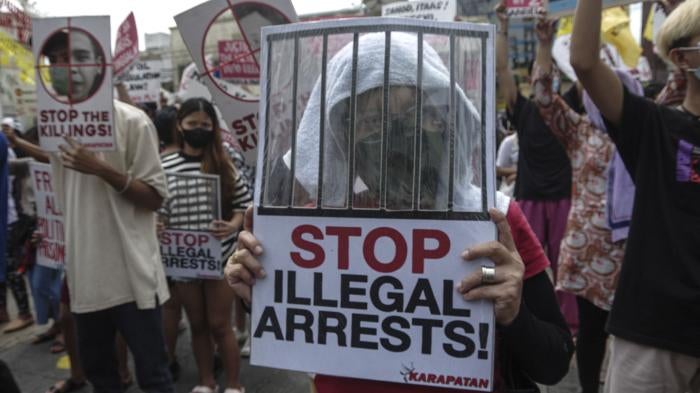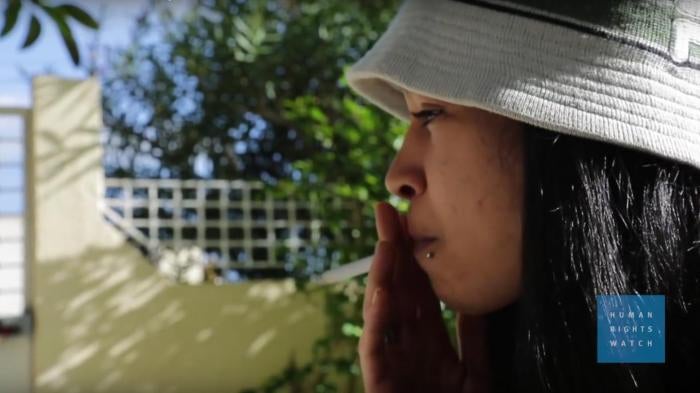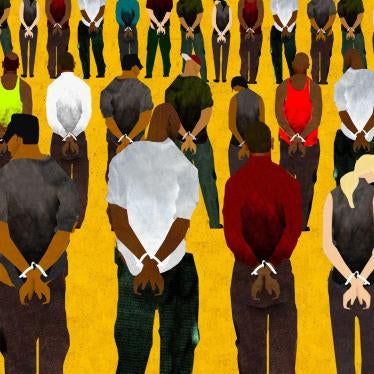
Drugs and Human Rights
For decades, governments have criminalized the use of drugs, as well as their possession, production, and distribution. They have poured billions of dollars into pursuing, killing, prosecuting, extraditing, and imprisoning kingpins, dealers, and people who use drugs.
Yet, as Human Rights Watch has repeatedly documented, this approach to drug policy has had devastating human rights consequences: undermining the rights to health and privacy; serving as an excuse for grossly disproportionate punishment, torture, and extrajudicial killings; and fueling the operations of organized criminal groups that commit abuses, corrupt authorities, and undermine the rule of law.
Human Rights Watch calls on governments to decriminalize all personal use and possession of drugs. We also urge governments to adopt alternative policies concerning the drug trade to reduce the enormous human rights costs of current approaches, including by reducing the use of the criminal law to regulate drug production and distribution. And we call for reform to global drug treaties and policies that impede exploration of these alternatives.
Videos
Videos-

-
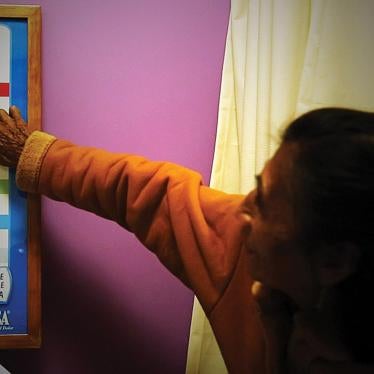
-
June 30, 2014
No Time to Waste
Evidence-Based Treatment for Drug Dependence at the United States Veterans Administration Department of Veterans Affairs
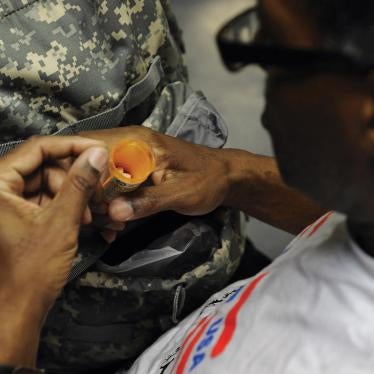
-

News
-
-
November 4, 2022
Civil and Human Rights Groups Urge Biden to Include Immigrants in Marijuana Pardons
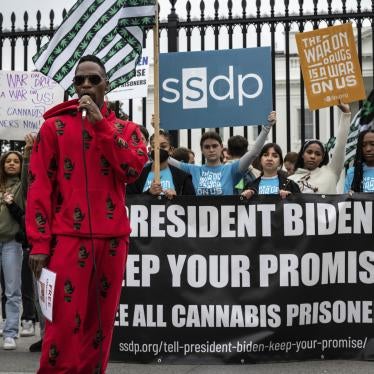
-
October 28, 2022
Biden Administration Takes Steps on Marijuana Justice Reform
Pardons Begin to Address Harm to US Communities of Color

-
-
September 12, 2022
Human Rights Watch Briefing Paper Addressed to Member-states of the UN Human Rights Council Ahead of the Council’s 51st Session
September 8, 2022
-

-
November 5, 2021
Singapore: Halt Execution of Man with Intellectual Disability
Executing Nagaenthran Dharmalingam Would Violate International Law, Treaty Obligations
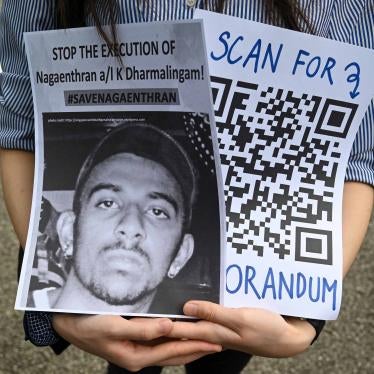
-
October 8, 2018
Trump’s Clarion Call to Re-Weaponize ‘Drug War’
UN Speech Suggests Support for Failed, Abusive Tactics

-
October 12, 2016
US: Disastrous Toll of Criminalizing Drug Use
Enforcement Destroys Families, Undermines Health

-
October 11, 2016
Filipino Overseas Workers in Peril of ‘Drug War’ Killings
Warnings to People Visiting Families in the Philippines


